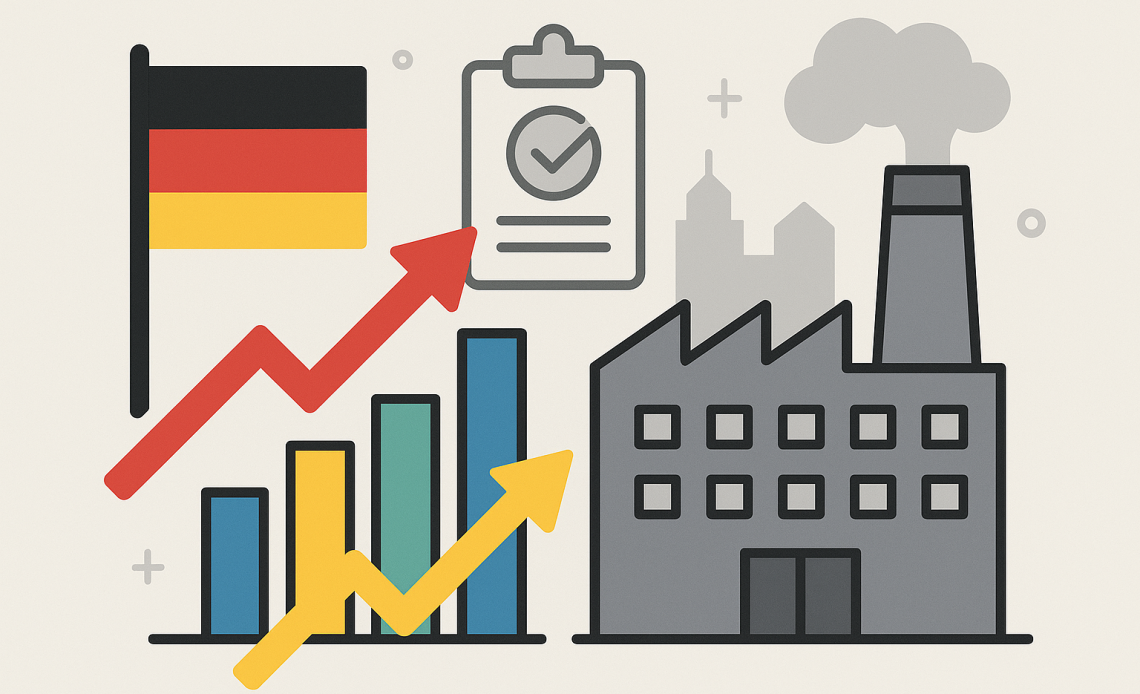Germany’s private sector registered its fastest expansion in 16 months in September, driven by a rebound in services that balanced out continued weakness in manufacturing.
The latest S&P Global Composite Purchasing Managers’ Index (PMI) climbed to 52.4 from 50.5, beating analysts’ expectations of 50.7 and moving further above the 50 mark, which separates growth from contraction.
The data provides some relief for Europe’s largest economy, which has been struggling to regain momentum after output contracted by 0.3% in the second quarter of 2025 and is forecast to post only a slight annual increase.
Services push activity higher
The improvement was powered by stronger demand in the services sector, where companies recorded rising activity.
This offset a deeper contraction in manufacturing, where new orders dropped sharply despite production growth continuing for a seventh consecutive month.
The divergence highlights the uneven recovery path for Germany’s economy, with service providers benefiting from stabilising demand while factories are exposed to weakening orders both at home and abroad.
Cyrus de la Rubia, chief economist at Hamburg Commercial Bank, noted that although firms have been expanding production, the decline in new orders raises the risk of a slowdown if demand continues to weaken.
He added that investment projects promised under Germany’s capital expenditure and incentive plans have yet to take visible effect, keeping business expectations subdued for the year ahead.
Economic performance remains fragile
Germany’s economy has faced a series of challenges, from energy costs to global trade tensions. After showing early strength in 2025, growth faltered in the second quarter.
The Bundesbank has projected a modest increase in gross domestic product between July and September, supported by easing trade frictions with the US.
A tariff accord between the European Union and President Donald Trump has helped reduce uncertainty and improve business sentiment for five consecutive months.
However, analysts caution that the improvement in private-sector activity may be short-lived without stronger demand. Manufacturing remains under pressure, and service providers are also reporting concerns about orders.
The PMI survey shows that firms are not yet confident about sustained growth, even with government support measures.
Global PMI trends
Germany’s expansion came against the backdrop of solid PMI readings in other major economies. India and Australia reported figures well above 50 in September, although both saw slight declines from the previous month.
Similar trends are expected in PMI data from the UK and the US later this week. Markets closely track PMI surveys, as they provide early signals of changes in economic conditions before official GDP data is published.
The September figures for Germany highlight the importance of the services sector in stabilising overall activity while manufacturing struggles to gain traction.
With demand slowing and investment projects still pending, the coming months will test whether Europe’s largest economy can maintain this fragile momentum.
The post Germany’s private sector hits 16-month high as services offset factory slowdown appeared first on Invezz







